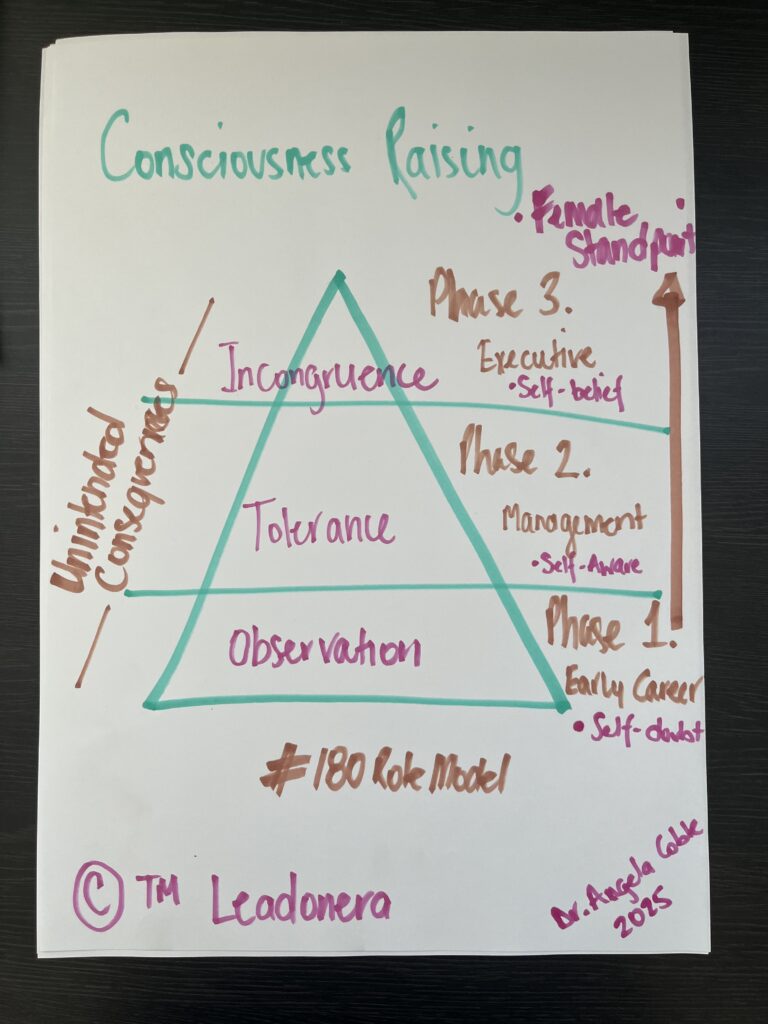
Have you heard the term “Boys Club”? Ever stopped to think what Unintended Consequences a label can create? Sharing some findings today about Clubs and why our Boys having a club is deemed a barrier for our Girls; and how labels continue to perpetuate negative learned behaviours for our Girls.
I had not heard the term “Boys Club” until my early 30’s when I found myself in an all-male leadership team – I was “advised” I had ‘…cracked the Boys Club’. I thought nothing of it until it was repeatedly used so I went in search of the underlying meaning – to learn it was something that I should see as a barrier in my career. I was not concerned – they treated me equal for my contribution, intellect and experience…although I smile at being escorted back to my room one evening after a late dinner to ensure I was “safe” before they all then went on to explore the city well into the wee hours. I reflected on my reaction at the time – and it has not changed – caring not excluding. Did I miss out on any major network opportunities that night – nope! A very successful Fortune 100 leader once said, ‘…nothing good happens for a business after 10pm or with alcohol” and to this day, I am sure he is still right. But I digress…back to the Boys Club!
Creating perpetual barriers through labels and politicising networks
Just remove the “Boys Club” label and any learned response (sometimes visceral) and that sense of overt negative connotation – just see it from the balcony for its intent and purpose. A wonderful network of supporters, your personal board of directors, wrapping around you as you traverse your career – helping you deliberate over choices, opening invisible doors, and supporting you to be the best version of yourself. Sounds great! Yet, by giving it a negative label to be leveraged by our girls early in career, has politised and weaponised a network that both genders should be seeking. Of course, clubs can be exclusive and create poor behaviour – we have all seen this! Yet, generalising the ‘Boys Club’ as a systemic barrier to women in their careers, seems emotive to me and a distraction to seeking one’s “club”. So, let’s discuss Consciousness Raising and why my research was able to connect this activity to more than just second-wave feminism to overcome this label (and others).

Consciousness Raising…
A little history…
Consciousness Raising became a key activity underpinning the politicised second-wave of feminism, where women would regularly connect to share experiences and accounts of their lives to create a commonality of gender (Pilcher & Whelehan 2017). The intent of the politicised approach, as was the basis of Consciousness Raising, was to awaken women to the prejudices of their social position and encourage them to reassess their lives, often through a public display of anarchy to the patriarchal society. I analysed the foundational concept of Consciousness Raising – that terrific network of supporters of peers and roles models – as a catalyst for career acceleration and overall participation in executive roles.
What I uncovered was an early convergence of social networks positively impacting the male career and accelerating their journey suggesting the importance of applying the construct of Consciousness Raising Theory to the female participation dilemma in leadership. When assessing the technology discipline where my research was grounded, I found remarkably when the elements of this theory are applied to the male pathway, it was discovered a version of Consciousness Raising was informally adopted at the early stages of the male technology career. These informal groups of men and their extended male networks were often instigated by a senior male champion with significant influence who would identify participants and include them in a lunch conversation or allow them to observe a meeting.
The benefits to the male participants of this informal Consciousness Raising extended well into their career, breaking down barriers, providing opportunities and a perpetual ‘Boys’ Club’ into their career future. Sadly, there was little evidence of Consciousness Raising, formal or informal, in the female technology leader’s career pathway with many attending events hosted by male champions seeking access to role models. The social influences, which included the “clubs” alter the parity of progression to executive leadership for Women. In short, Men more often experience positive social experiences, through elements of Consciousness Raising, that accelerate their career pathway whilst women experience negative social experiences, lack of Consciousness Raising, that decelerate their career pathway.
Change the narrative…the consequence of labels
Whilst there are a series of systemic actions thrown at the deficit of women in leadership, from Governments to the Workplace, a simple change that we can all embrace that costs nothing other than a reframe of our minds – is chose our words wisely and critically assess the unintended consequences of well-intended efforts. A concept explored in my research was the creation and overuse of gender-specific labels that produce negative consequences for females. The labels given to experiences of women, although common to both sexes, are negative in connotation, fulfilling perceived barriers, for example ‘impostor’ and ‘syndrome’. When I explored the consequence of labels concept in terms of the male participants in my study, a correlation was found between their experience of this same feeling across their career journeys as that labeled “Imposter Syndrome” for the female experience – yet their identification of this experience was a ‘…positive challenge through an immersive learning experience‘. At no stage in the data did the male participants in my research refer to impostor syndrome and that the uncomfortable lack of knowledge experienced in a new role be anything other than learning. This was a reoccurring theme for male participants, and they aligned and labeled this experience as “Growth mindset” – decidedly more positive than being an imposter and having a syndrome!
And now we come back to the ‘Boys’ Club’.
In my interviews, the Boys Club was referenced by my female participants as a barrier to navigating their career pathways and a continued negative impact on their ability to grow their careers. Arguably, this ‘Boys’ Club’ reference could be deemed as nothing more than an example of male Consciousness Raising and an active male support network to assist their ascension to leadership. Undoubtably, this is a controversial view drawn from my research in an unemotive manner, and never should this view undermine episodes where the label has been used to cover poor behaviour, such as overt harassment and under performance. Rather, the view is just merely to take the positive and well-intended elements of the mechanism of the ‘Boys’ Club’ and apply that to the female career path as a counter to the negative experience produced by the label. In no situation, be they male or female, should there be dismissal of harassment and acceptance of poor performance, no matter the ‘Club’. Merely it is construed that should the narrative be reversed, and organisations take the positive elements of the ‘Boys’ Club’ and leverage that for programs for female Consciousness Raising, with an active network of support, this equivalent may overcome the negative narrative associated with another gender-specific label.
Let’s give early-in-career girls the club they deserve, not a label to learn!
Author: Dr. Angela Coble OAM
References:
Coble A 2024, ‘Exploring Success in Technology Leadership and Pathways to Catalyse Participation of Women in Leadership’ University of Southern Queensland.
Pitcher, J & Whelehan, I 2017c. “Consciousness Raising’, in Key Concepts in Gender Studies
